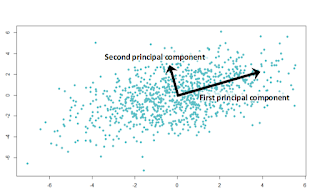[PAPER PRESENTATION] Steering User Behavior with Badges - WWW 2013
Title: Steering User Behavior with Badges - WWW 2013
Abstract:
An increasingly common feature of online communities and social media sites is a mechanism for rewarding user achievements based on a system of badges. Badges are given to users for particular contributions to a site, such as performing a certain number of actions of a given type. They have been employed in many domains, including news sites like the Huffington Post, educational sites like Khan Academy, and knowledge-creation sites like Wikipedia and Stack Overflow. At the most basic level, badges serve as a summary of a user’s key accomplishments; however, experience with these sites also shows that users will put in non-trivial amounts of work to achieve particular badges, and as such, badges can act as powerful incentives. Thus far, however, the incentive structures created by badges have not been well understood, making it difficult to deploy badges with an eye toward the incentives they are likely to create. In this paper, we study how badges can influence and steer user behavior on a site—leading both to increased participation and to changes in the mix of activities a user pursues on the site. We introduce a formal model for reasoning about user behavior in the presence of badges, and in particular for analyzing the ways in which badges can steer users to change their behavior. To evaluate the main predictions of our model, we study the use of badges and their effects on the widely used Stack Overflow question-answering site, and find evidence that their badges steer behavior in ways closely consistent with the predictions of our model. Finally, we investigate the problem of how to optimally place badges in order to induce particular user behaviors. Several robust design principles emerge from our framework that could potentially aid in the design of incentives for a broad range of sites.
Authors:
Ashton Anderson Stanford University, Stanford, USA
Abstract:
An increasingly common feature of online communities and social media sites is a mechanism for rewarding user achievements based on a system of badges. Badges are given to users for particular contributions to a site, such as performing a certain number of actions of a given type. They have been employed in many domains, including news sites like the Huffington Post, educational sites like Khan Academy, and knowledge-creation sites like Wikipedia and Stack Overflow. At the most basic level, badges serve as a summary of a user’s key accomplishments; however, experience with these sites also shows that users will put in non-trivial amounts of work to achieve particular badges, and as such, badges can act as powerful incentives. Thus far, however, the incentive structures created by badges have not been well understood, making it difficult to deploy badges with an eye toward the incentives they are likely to create. In this paper, we study how badges can influence and steer user behavior on a site—leading both to increased participation and to changes in the mix of activities a user pursues on the site. We introduce a formal model for reasoning about user behavior in the presence of badges, and in particular for analyzing the ways in which badges can steer users to change their behavior. To evaluate the main predictions of our model, we study the use of badges and their effects on the widely used Stack Overflow question-answering site, and find evidence that their badges steer behavior in ways closely consistent with the predictions of our model. Finally, we investigate the problem of how to optimally place badges in order to induce particular user behaviors. Several robust design principles emerge from our framework that could potentially aid in the design of incentives for a broad range of sites.
Authors:
Ashton Anderson Stanford University, Stanford, USA
Jure Leskovec Stanford University, Stanford, USA
Presentation: link to the slide here
Presenter: Le Duy Dung
Presentation: link to the slide here
Presenter: Le Duy Dung



Comments
Post a Comment